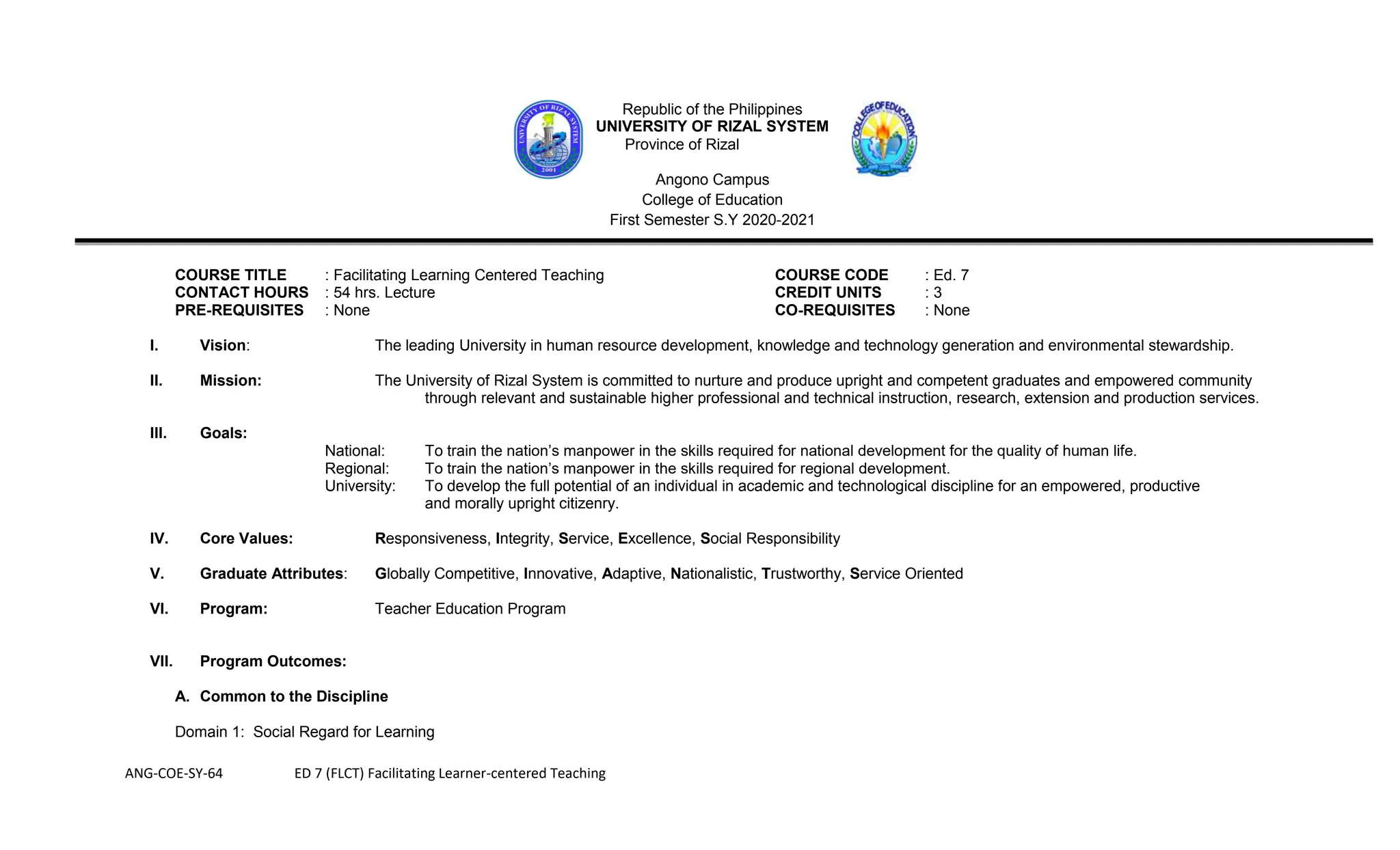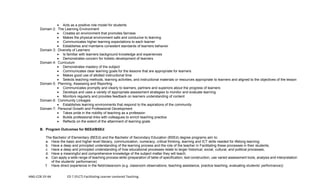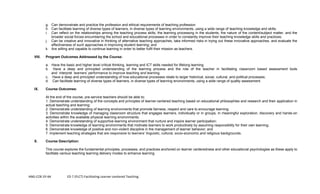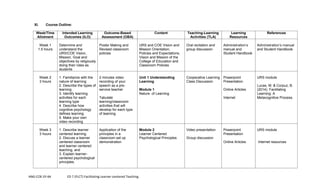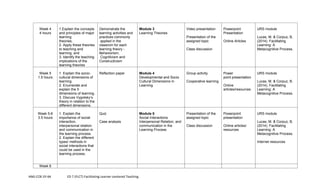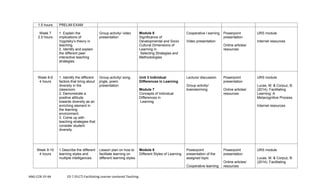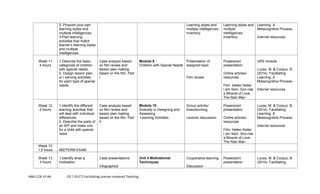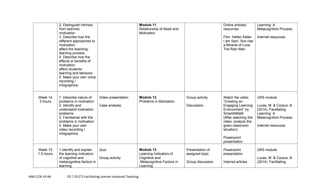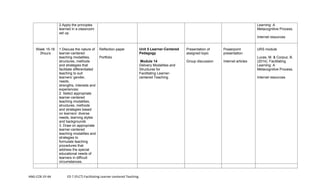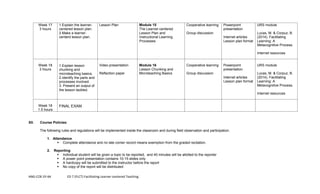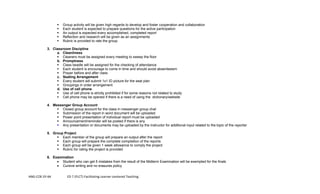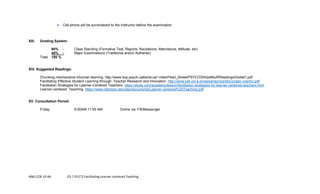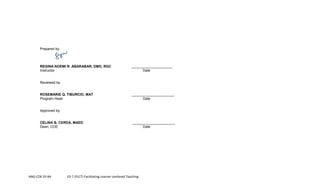This document outlines the course syllabus for Facilitating Learner-centered Teaching (Ed. 7) at the University of Rizal System Angono Campus College of Education. The course explores principles and practices of learner-centered teaching based on educational philosophies and research. It covers understanding the nature of learning, learner-centered learning approaches, major learning theories, socio-cultural dimensions of learning, and the importance of social interaction and communication in the learning process. The 11-week course uses various teaching-learning activities including group discussions, presentations, videos and reflection to help pre-service teachers develop skills and knowledge for facilitating diverse learners in different learning environments.
